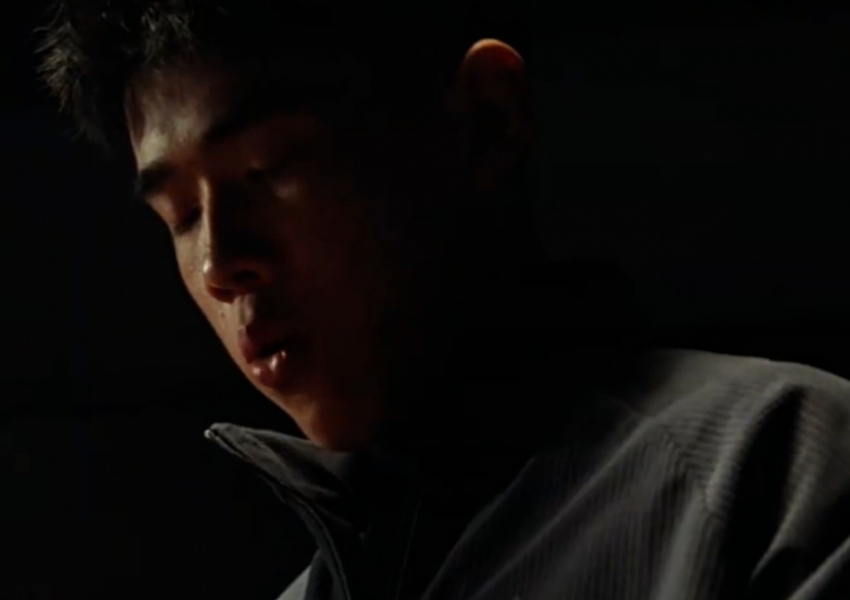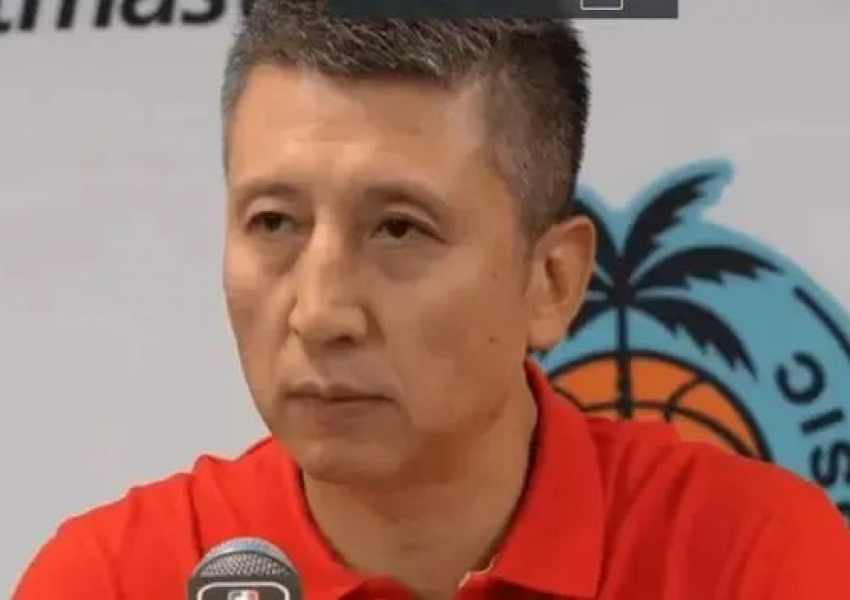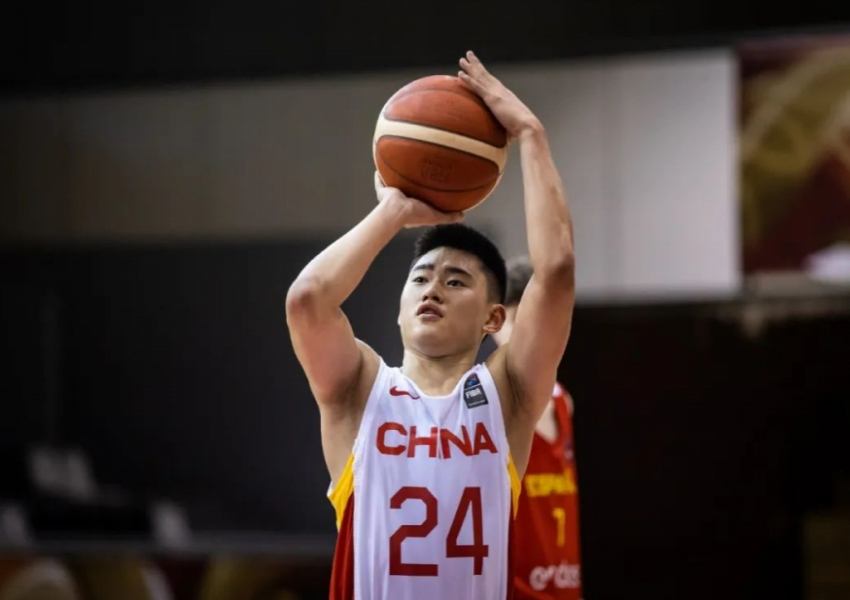China's Basketball Future in Doubt: Lin Wei's Permanent Ban?
Guo Shiqiang has officially taken the reins as head coach of the Chinese national basketball team. Despite his disappointing 1-10 record in recent warm-up matches, which has sparked significant controversy, the decision is now final, and there's little point in dwelling on it further. Many media commentators and fans have expressed dissatisfaction with this appointment. However, those familiar with Guo's coaching track record, including his success with the Guangzhou team, recognize his abilities. He has transformed Guangzhou into a playoff-level team and has excelled in developing local talent like Chen Yingjun, Cui Yongxi, Jiao Boqiao, and Li Yanzhe.

Yet, Guo's decisions regarding player selection and utilization since taking over the national team have been perplexing. The initial plan was to focus on younger players in preparation for the 2027 FIBA World Cup and the 2028 Olympics. So why call up 28-year-old Gao Shiyan? If the aim was to integrate experience or still prioritize winning, then more accomplished CBA stars like Zhao Jiwei or Sun Minghui should have been considered. Frankly, if Guo had not included Gao Shiyan and several other veterans who haven't even proven themselves in the CBA, and instead fully committed to the youth movement—even if it meant losing every warm-up match this summer—the backlash would likely have been much less severe. Instead, Guo chose to go against the grain, placing himself directly in the line of fire.

Another contentious issue has been Guo's authoritarian coaching style, particularly highlighted by his fallout with young talent Lin Wei. Their conflict became highly publicized, leading to Lin being expelled from the national team. While minor disagreements are normal, this situation seemed disproportionate. Veteran sports journalist Fu Zhenghao recently analyzed Guo's personality, shedding light on why he may have been so harsh with Lin.

Does this mean that as long as Guo is coaching the national team, Lin Wei will never return? Lin is one of the most promising young players in China, averaging over 20 points per game in just his second season. He has also excelled in international training camps, demonstrating that he is not just a domestic standout but can compete globally. The future of Chinese basketball must include Lin Wei; he embodies its potential. However, given Guo's disposition, it seems the national team cannot accommodate both. Even if Lin were to return, Guo might still refuse to use him effectively due to their unresolved issues.
Additionally, Zhao Weiren, who left the team for academic reasons and missed out on overseas training, likely left a negative impression on Guo. This situation further complicates the dynamics within the team. As the saying goes, "flowers look their best with the backdrop of green leaves." With Guo's contrasting style, the previous coach, Jorjevic, who led the team to its worst-ever World Cup finish, a loss in the Asian Games, and a defeat to Japan in the Asian qualifiers, now seems more appealing. At least Jorjevic was receptive to advice and genuinely interested in nurturing young talent. During his tenure, he organized two short training camps specifically to scout young players and used his connections to promote promising Chinese talent to NBA scouts.
Guo Shiqiang's first official test as the head coach of the Chinese national team will be in the Asian qualifiers this November, facing Guam and Mongolia. However, the true challenge will come early next year when China faces Japan in a home qualifier. This game is not just about qualifying; it's a chance for revenge. If Guo can lead the team to victory, he might finally vindicate himself and restore his reputation.
The recent turmoil surrounding Guo's appointment and his controversial decisions has thrown the future of Chinese basketball into uncertainty. His tenure has been marred by questionable player selections and an authoritarian approach that alienates some of the country's brightest young talents. Lin Wei's exclusion, in particular, has sparked outrage among fans and analysts alike, given his potential to be a cornerstone for the national team in years to come.
Lin Wei's track record speaks volumes about his capabilities. Averaging over 20 points per game in just his second year, and his impressive performances in international settings, highlight his ability to perform at the highest levels. The decision to exclude him from the national team not only hampers the team’s current performance but also jeopardizes its future.
Zhao Weiren's situation further exacerbates the concerns. His temporary departure for academic purposes and subsequent exclusion from overseas training have left a sour taste. These incidents highlight a rigid, uncompromising approach from Guo that may not be conducive to fostering a cohesive, motivated team environment.
Comparisons to Jorjevic, despite his mixed record, underscore the need for a coach willing to invest in and develop young talent. Jorjevic's openness to nurturing players and leveraging his global connections to promote Chinese basketball talent stands in stark contrast to Guo's current approach.
The Chinese basketball community is at a crossroads. Guo’s upcoming matches in the Asian qualifiers will be closely scrutinized, not just for the results but for the approach he takes. Will he continue to rely on older, less proven players, or will he embrace the young talent that represents the future of Chinese basketball?
Ultimately, the fate of players like Lin Wei and Zhao Weiren will be telling. Their inclusion and effective use within the national team could signal a shift towards a more inclusive and forward-thinking strategy. Conversely, their continued exclusion may perpetuate a cycle of short-term decisions that undermine long-term success.
As the team prepares for the crucial qualifier against Japan, the stakes couldn't be higher. A victory could validate Guo's methods and buy him some much-needed goodwill. However, a loss could further entrench the criticisms and doubts surrounding his leadership.
The broader implications for Chinese basketball are significant. The sport in China is at a pivotal moment, with the potential to rise on the international stage or languish due to mismanagement and missed opportunities. The current controversies underscore the need for a unified vision that prioritizes talent development and strategic growth.
In conclusion, while Guo Shiqiang's appointment and subsequent decisions have been contentious, the upcoming matches will provide a clearer picture of his leadership capabilities. The inclusion and development of young talents like Lin Wei and Zhao Weiren will be crucial in determining the future trajectory of Chinese basketball. The community and fans alike will be watching closely, hoping for a strategy that not only wins games but also builds a sustainable and successful future for the sport in China.
Copyright Statement:
Author: focusnba
Link: https://www.focusnba.com/sports-blog/chinas-basketball-future-in-doubt-lin-weis-permanent-ban.htm
Source: FocusNBA
The copyright of this article belongs to the author. Reproduction is not allowed without permission.
Recommended Blog
- Taking a Break! Cui Yongxi Temporarily Exits NBA! China's Top Forward Shows True Grit...
- Just 1 Point! Team USA Nearly Upset, Embiid's Bold Comments Backfire!
- 7’0”, 7’5” Wingspan! The Second Overall Pick Already a Bust After Four Games?
- 51-Point Man to Replace George? Lakers Fast-Track Trade! The Ideal Third Option...
- Trade Finalized! Westbrook Officially Leaves the Clippers: Is This His Last Chance?
- Lakers Eyeing Ayton! 3-for-1 Trade Proposal Unveiled! The Western Conference to Heat Up Again...
- Keep Dismantling! Last Year They Sold Their 3D Guard, This Year Their 3D Center. What’s the Bucks’ Rebuilding Strategy?
- Leave, Klay! Even if It Means a Minimum Salary, Don’t Stay with the Warriors
- From Playoff Fringe to NBA Champions: How Brad Stevens Turned the Celtics into a Contender in Just Three Years
- No Takers! NBA's Biggest "Negative Asset," 29-Year-Old All-Star, 15 Trade Attempts, 15 Failures
Hot Blog
- Tension in New York? Mikal Bridges Calls Out Thibodeau’s “Plantation-Style” Rotation!
- Kevin Durant = Three First-Round Picks? In Just Two Years, the Suns Lost Big!
- Major Decline! What Is De'Aaron Fox’s True Level with the Spurs?
- Completely Out of the Rotation! Why 25-Year-Old Cam Reddish Can't Get on the Court Anymore
- A Miraculous Buzzer-Beater—But What Level Is Kawhi Leonard Really At Now?
- 4,000 Threes! Just How Impossible Is Stephen Curry’s Latest Record?
- $293M Supermax and an MVP? Is There Any Doubt Left for Shai Gilgeous-Alexander?
- $110 Million Over Two Years—Butler Was Worth Every Penny
- $418M for Luka Dončić? Is the Lakers' New Star Worth It?
- 31-21-22! Did Jokic’s Historic Triple-Double Just Reignite the MVP Race?